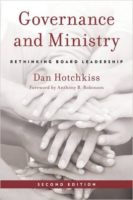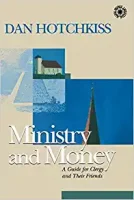
The Nones are in the news and have been for a while. “Nones” are people who, when pollsters ask for their religion, say “None.” Nones used to be a tiny group, but now None is among the top three answers, alongside Roman Catholic and Evangelical Protestant. The rise of Nones reflect a cultural shift that can feel threatening, especially to Mainline Protestants, whose numbers have declined as Nones’ have risen. But for leaders who can listen sympathetically and respond flexibly, Nones may offer opportunities as well as threats.
As a lifelong churchgoer, I sometimes find myself in sympathy with Nones, many of whom reject the same religious doctrines I do and criticize religious institutions for the same faults. Other Nones alarm me, for example, those who exercise their freedom of religion by abusing Jews and LGTBQ+ people, or who reject authoritarian churches only to embrace totalitarian politics.
Who are the Nones?
“Nones” comprise a complicated category—some are devout atheists, while others hold surprisingly traditional religious views. Some even belong to a church or synagogue—for family reasons, out of habit, or because the congregation is None-friendly. Other Nones hold hostile or indifferent attitudes toward all “organized religion.” For the term “Nones,” we are indebted to Ryan P. Burge, a political scientist who is also an American Baptist Pastor, author of The Nones: Where they Came From, Who They Are, and Where They Are Going.
The complexity of the Nones category makes it hard to say why it has grown so rapidly. Four possibilities seem most important:
One is that people’s beliefs have changed. Compared with 30 years ago, fewer people say that they believe in God, heaven, hell, or that one religion is the only way to achieve salvation. This may mean that people have changed their minds, or that younger people believe differently than those who have died.
A second possibility is that rejection of traditional beliefs and practice has become more socially acceptable. People often lie to pollsters if they think the truth would make them look bad. If people previously exaggerated their non-None-ness and the taboo has lifted, we might be seeing a snowball effect, where opinion poll results change faster than opinions do.
A third possible explanation is that we lack shared language for talking about beliefs. This makes it hard to frame survey questions and know what the answers mean. It seems likely, for example, that many people who answer “None” hold strong beliefs (in reincarnation, for instance) that for them are not “religious” because they do not come from the Western traditions they are most familiar with.
A reason for the rise of Nones—perhaps the most important—is that voluntary affiliation of all kinds has been in decline. Robert Putnam observed some 20 years ago that Americans had started Bowling Alone. We still bowl, but often skip the messy work of organizing bowling leagues, making rules, buying uniforms, and settling disagreements. Instead, we go to a commercial bowling alley, alone or with some friends, plunk down our credit card, and bowl.
The decline of bowling leagues has gone hand in hand with the decline of Scouting, Women’s Clubs, Elks Clubs, Rotary—and congregations. We still gather, in person or online, but increasingly, we think of ourselves as groups of friends, not joiners of societies, and as customers, not members. Churches used to organize fiercely competitive baseball and basketball leagues in fierce competition. Today, Ironman and Peloton and CrossFit offer ready-to-go sport and fitness experiences, without the inconvenience of negotiating with the person on the next machine.
“A man will worship something,” Emerson said, and it is true: the alternative to religion is not None. It is what Putnam called Sheilaism—a religion I create for myself, with all the limitations of an isolated self.
What’s Next for Congregations?
It will not be easy for “organized religion” to recover its lost popularity. The most important reason for this, I am convinced, is not the changes in what people believe—real though those are. It is the replacement of civic values with commercial ones. Why organize with neighbors for joint effort when we can each get everything we want simply by buying it?
Something is lost, of course, in the shift from do-it-yourself religion to the new store-bought variety. Independents—in religion as in politics—are vulnerable to mass manipulation. Beliefs formed via iPhone or accepted from a guru tend to be shallow. “Organized religion,” along with civic and political groups, offer at least the potential to form strong beliefs in deep, face-to-face conversation among trusted members of a community.
Congregations have long served as training grounds for organizing of all kinds. Women had charge of their own groups and treasuries before they could vote, and for a century after Emancipation, the Black church was one of the very few independent institutions governed for, of, and by Black people. Updating and re-learning and then teaching organizing skills is a potential way for the revival of religious organizations. People who have let go of their automatic loyalty to congregations as they once were are well-suited to help lead this revival.
Make no mistake—the Nones will be tough customers! A congregation that wants to embrace them will need to uphold high ethical standards, keep its promises, minimize the tedium, and focus on what is most essential. Those who can do these things will be found by Nones who are hungry for the lasting satisfactions that can come when we commit to “bowl together” for the long haul.
Dan Hotchkiss has consulted with a wide spectrum of churches, synagogues, and other organizations spanning 33 denominational families. Through his coaching, teaching, and writing, Dan has touched the lives of an even wider range of leaders. His focus is to help organizations engage their constituents in discerning what their mission calls for at a given time, and to empower leaders to act boldly and creatively.
Dan coaches leaders and consults selectively with congregations and other mission-driven groups, mostly by phone and videoconference, from his home near Boston. Prior to consulting independently, Dan served as a Unitarian Universalist parish minister, denominational executive, and senior consultant for the Alban Institute.


